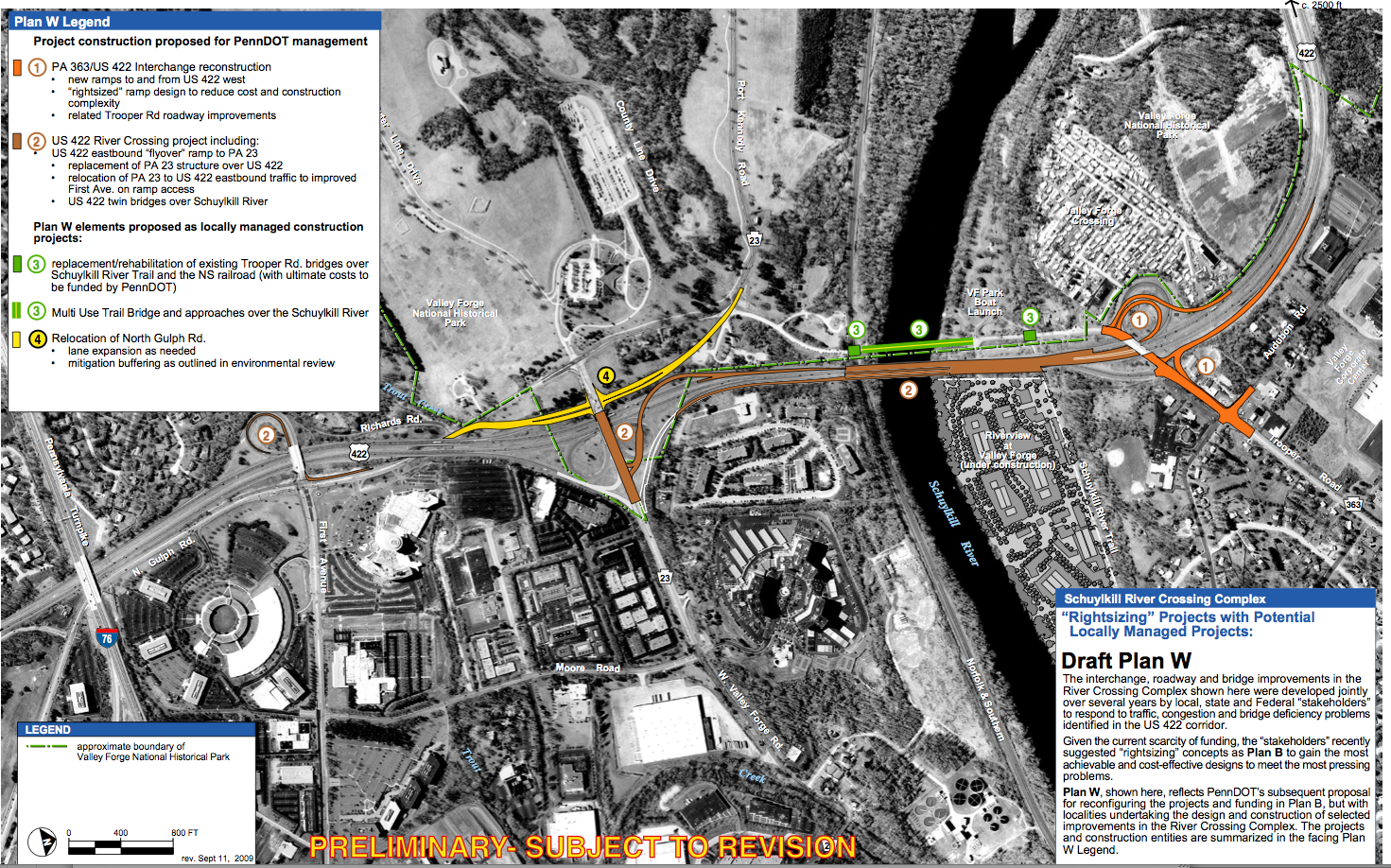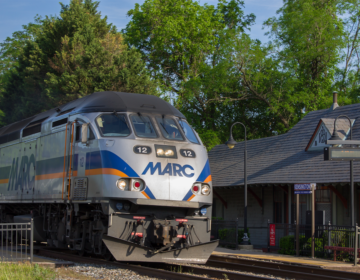Transit projects move forward despite funding crisis
While Pennsylvania’s failure to toll Interstate 80 has punched a $120-million hole in SEPTA’s capital budget, two major regional transit projects are still inching forward without state aid.
Backers of the Delaware waterfront trolley and the Rt. 422 corridor projects say they are proceeding with planning work despite the state-wide cut in transportation spending under Act 44.
The loss of hundreds of millions of dollars in annual subsidies has forced SEPTA to put the brakes on major capital projects, like City Hall station renovations, the Wawa regional rail extension and the implementation of a new smart card fare collection system.
Yet at the same time, the Delaware River Port Authority is forging ahead with an environmental assessment study for a proposed Delaware River light rail line. The study, which should cost about $6 million, will involve preliminary engineering work on the line and begin looking at its community impact.
It’s also, as DRPA CEO John Matheussen points out, a necessary step in applying for federal New Starts funding. If it wins a slot in the program, the federal government could pick up half of the estimated $500 million cost of building the line, he said.
That may be more likely thanks to a decision earlier this year that would allow the Federal Transit Administration to reduce its emphasis on cost-effectiveness in evaluating New Starts applications and to give equal weight to livability issues.
The line’s backers have seen it as a way to promote economic development and walkable communities along the waterfront, and the new guidelines will allow the DRPA to make that case.
Under its current incarnation, the line would begin at City Hall and then run along Market Street to the river, where light rail cars would operate between Pier 70 and Girard Avenue along Columbus Boulevard.
All the costs for the project have so far been picked up by the DRPA. The authority gets its money from tolls on area bridges, such as the Ben Franklin and the Walt Whitman, and isn’t dependent on Act 44 funding to maintain the bridges or its other major service, the PATCO rail line from Philadelphia to Lindenwold in South Jersey.
The Rt. 422 project, which would make improvements to that congested highway in Montgomery County and extend SEPTA’s R6 Norristown Line to Reading, is further along than the Delaware light rail line. At this point it also isn’t dependent on Act 44 money, according to Leo Bagley, assistant director of the Montgomery County Planning Commission.
The Montco Planning Commission is studying the feasibility of tolling the highway in order to raise enough money to pay for the project. Although the county may ultimately need new state legislation that would make it easier to partner with a private company to help with road management and maintenance, at this point “we don’t think we need any additional legislation,” Bagley said.
The tolling study should be completed by the end of the year, at which point a better picture of the ultimate costs for the project and the money available to fund it will be known, he said.
Montgomery County has become a leader in self-funded transportation projects. In testimony last month before the state House Transportation Committee, Bagley amazed lawmakers by detailing the county’s previous efforts to pay for improvements on state roads as well as describing a $150-million bond that will be issued to do further infrastructure improvements.
It should be noted that at this time it’s uncertain whether these two projects will be able to take the next step and move off the drawing board and into construction given the current funding climate.
Matheussen cautioned that evaluating the ultimate impact of Act 44 would be “speculation” at this point — the environmental review will take about two years and key questions, such as who would operate the proposed line, remain unanswered.
And Bagley, for his part, said operating subsidies may be needed to make the regional rail line extension fiscally possible. The state may also have to chip in some money to help cover capital costs for the highway and rail extension, though Bagley said the county will also look at federal subsidies.
Contact the reporter at acampisi@planphilly.com
WHYY is your source for fact-based, in-depth journalism and information. As a nonprofit organization, we rely on financial support from readers like you. Please give today.








